- Home
- Molly Harper
A Few Pecans Short of a Pie Page 2
A Few Pecans Short of a Pie Read online
Page 2
Margot sat back in the ergonomically friendly black chair Uncle Bob had insisted on buying as a “welcome to our office” present. It was the newest item in the cramped wood-paneled room, with its monstrous metal filing cabinets and outdated laminate furniture. She’d made it through the meeting with the Harmons about the plans for their great-uncle Winthrop, and the delivery of Mrs. Allen’s body, both without getting sick. She considered that a pretty good start, especially with the spring warmth creeping into the day like an unwanted houseguest. Not to mention the smell of Aunt Leslie’s daily special—fried shrimp balls—wafting in and out of the building.
“Yep, I am a pregnant badass,” she muttered, slipping the Harmon funeral plans into the filing cabinet behind her. She closed her eyes and silently congratulated herself on completing the task. “Just one day, that’s all I ask, peanut. One day where I get to leave the office with some dignity. We can do it. Go Team McCready-Hyphen-Archer. Come on.”
Inside her belly, she felt the baby nudge against her ribs, something that thrilled her every time it happened. “I’m going to consider that an internal fist bump and a tacit agreement that you’ll take it easy on me.”
The McCready Family Funeral Home and Bait Shop had been an institution in Lake Sackett for nearly a hundred years. Margot’s family had lived in Sackett County since the 1840s, long before the Army Corps of Engineers created the lake by damming the Chattahoochee River at Sackett Point. Her whole extended family lived on what could only be called a compound of cabins on the original family homestead, which happened to be lakefront property now.
The funeral home and bait shop was located several miles down the shoreline, accessible by boat if the family was ever running really late for work—not that Margot had ever tried it. She was not the most boat-oriented McCready, despite Kyle’s passion for sailing. The business had sprung from a pair of brothers, John McCready and Earl Jr. Earl and his wife, Kate, used the army money Earl saved from serving in World War I to build a little bait shop, selling bait, tackle, and lunch baskets to fishermen on their drive to the river. John, who had always been far more interested in carpentry than fishing, developed a reputation as one of the best cabinetmakers in the county. And then the flu pandemic hit and the county’s dwindling population needed coffins a lot more than they needed John’s beautiful storage creations.
With the high coffin demand, John needed more space to build and asked Earl to use the back of the bait shop as a workshop. Since Earl and Kate were friendly with John and his wife, Ellie, there were no problems in their sharing close work quarters. The bait shop blossomed, because people loved Kate’s extra-tart lemonade and Earl’s ability to raise legions of the fat, slimy night crawlers the local fish loved best. The funeral home’s business doubled and then tripled, because death still came knocking, even during Prohibition, the Depression, and war. Kate and Ellie figured out how to make people comfortable even in the worst times of their lives with soft piano music and arrangements of roses grown in Kate’s garden. And when the river was dammed, the water stopped right at the shop’s back door, as if the business were always meant to be a fully operational marina.
The McCreadys added extra services and buildings on to the business over the generations, and the locals adapted to smelling diesel fuel and freshly caught fish while mourning their dead. Aunt Donna and her son, Duffy, sold tackle, chartered boats, and ran fishing tours out of the dockside bait shop. Aunt Leslie’s snack stand was the heart of the marina operation, filling the tourists with the volcanic black battery acid Leslie called coffee before sending them out on the water. Even mourners were known to drown their sorrows in the crispy salt-sweetness of a deep-fried Oreo, when they could duck away from the chapel.
Margot had taken over a corner of Bob’s office, to help with the sales and planning aspects of the business. While Bob had a talent for the logistics and paperwork of funeral planning, he was not known for his skill in interacting with the public. He was a handsome, charming man who somehow managed to say the wrong thing every time he spoke to a non–family member.
Margot sighed as she heard the small framed paintings rattling against the hallway walls, the way they always did when someone walked toward her office. Though half of the colorful paint-by-number Jesuses had been culled (and respectfully buried) since Frankie clashed against a teenage pinhead with a penchant for breaking and entering, the remaining painted saviors provided an excellent early warning system when people were coming to interrupt her work.
Her great-aunt Tootie strode into the office, and for the first time in Margot’s memory she was not accompanied by her pack of somewhat ill-behaved dogs. Petite and blessed with a cloud of thick white hair held back with a purple sun visor, Tootie was every old Southern lady stereotype and yet none of them, with her weekly poker games, her track suits, and her canine companions. She was far more tech-savvy than the average octogenarian, but would debate the finer points of appropriate cornbread recipes until nearby relatives felt like leaping into the lake.
At the moment, Tootie was carrying a red metal gallon thermos clinking with a wealth of ice cubes inside, which she set on Margot’s desk with a flourish. Instead of Tootie’s usual four-legged companions, Aunt Leslie was at her heels, a broad grin on her elfin face.
“Here’s your morning delivery, honey. Decaffeinated, and I took it easy on the sugar,” Tootie said, nodding to the thermos. Her blue eyes seemed to catch on the white paper coffee cup on Margot’s desk. “You know what the doctor said, your blood pressure is sensitive to caffeine. You can’t drink coffee.”
“I wasn’t drinking it, I just wanted to smell it,” Margot protested as Tootie poured the coffee into a nearby potted plant and dropped the cup in the garbage. Margot had serious concerns about the plant’s future. “I know better than to expose an unborn child to Leslie’s brew.”
“That’s fair,” Leslie conceded. “But not necessarily something you should say to the person who brought you your wedding binder, which you forgot at home!”
Margot didn’t understand how a slight woman like Aunt Leslie managed to heft the lace-covered nightmare onto her desk. Margot hadn’t even known they made five-inch three-ring binders, but Leslie had special-ordered one over the Internet and created “Margot’s Wedding Binder,” covered in sequins and scraps of tulle and lace, with an extremely unflattering photo of her and Kyle on the front. The photo was framed in tiny rosebuds made from ribbon in an unearthly shade of peach. She hadn’t been aware that this color existed, but apparently Aunt Leslie thought it was the height of bridal elegance. She had, in fact, used that exact shade for her bridesmaids’ dresses when she and Uncle Bob got married in her big white wedding at the Lake Sackett First Baptist Church in 1973. The pictures had been . . . eye-opening.
“Oh, thanks,” Margot said weakly.
“Now, I noticed that you’d gotten a pretty good start on a guest list,” Leslie said. “I hate to bring it up, but you didn’t invite my sister’s in-laws. And if they find out my sister was invited but they weren’t, they’re going to get all offended because they think they’re just as close to the McCreadys as my sister is and it’s going to make Thanksgiving with my side of the family very difficult.”
“I’ve never met your sister,” Margot noted. “Or her in-laws.”
Aunt Leslie grimaced, an unfamiliar expression on her normally cheerful face. “I know, honey, but it’s only nine more people and it would really make my life easier. And just think of all the extra gifts you’ll get.”
“If you give me their information, I’ll put them on the list,” Margot said.
“I already wrote their addresses down on your list!” Leslie chirped. “And I put some names in the section for ‘favors.’ Now, I know your taste is more ‘understated and modern,’ but people around here expect a little flash. And my friend Geri, her son owns a printing shop two towns over and he’s willing to give you the ‘friends and family’ discount on commemorative glasses for your favors. Look, he even
made you up a sample.”
Leslie pulled a small object out of her apron pocket and handed it to Margot. The tiny glass was printed with KYLE AND MARGOT—TAKE A SHOT WHILE WE TIE THAT KNOT in the same shade of peach as her binder decor.
“This is a shot glass,” Margot said.
“Oh, it’s real common around here. Shot glasses, beer koozies, coasters. You want people to have something they’ll use later and think back on your wedding with fondness.”
Margot’s lips pulled back at the corners while Tootie stepped behind Leslie and shook her head briskly. “But a shot glass? At a wedding where I will be very obviously pregnant?”
Leslie frowned. “I hadn’t thought about that.”
“How about we just table the favor discussion until I have time to think about it?” Margot suggested.
“But you’ve said that about just about everything and time’s running out if you want to have a summer wedding, even a late-summer wedding. You’ve got to get moving and make some decisions.”
“I know that, Aunt Leslie, but I don’t think I’ve found the things I want for the wedding yet and I don’t want to make agreements with vendors until I’m ready.”
“Well, that doesn’t include caterers, right?” Aunt Tootie asked. “Because I may have told Jude down at the Dirty Deer that he should save his weekends in June.”
“Aunt Tootie!” Margot exclaimed. “I told you I wasn’t settled on the Dirty Deer catering the reception. I’m still looking at caterers in Atlanta.”
“I know, honey, but Jude’s aunt Lucille is in my poker circle and it was becoming real awkward trying to give her reasons why you weren’t calling him.”
Margot sighed and dropped her head to her desk.
“All right, all right,” her cousin Marianne called, sweeping into the office and dropping a white to-go cup and small white paper box next to Margot’s head. “Everybody out. You’re driving poor Margot crazy.”
“But we need to talk about the wedding!” Leslie exclaimed. “How are we ever going to get everything done in time?”
Tootie, however, seemed to sense that she’d pushed Margot too far, and nudged Leslie out of the room. “Come on, Les, we’ll talk about it later. Margot’s got a lot on her mind.”
“But—but—” Leslie protested as Marianne said, “I love you, Aunt Leslie, but I’m closing this door in your face.”
And then she did. Which was why she was Margot’s favorite cousin. In addition to Duffy and Frankie. It was a three-way tie.
“Is that coffee?” Margot asked, picking up the cup with a hopeful expression.
Marianne shook her head, tossing her dark auburn waves. “No, it’s calming herbal tea. I could practically hear your blood pressure rising from across town.”
“You no longer have my attention,” Margot muttered, standing up and double-checking that the vents above her head were closed. There wasn’t a service going on in the chapel, but she didn’t want their voices to carry through the air-conditioning system.
Marianne dropped into the chair across from her desk. “Rough week, kiddo?”
Margot groaned and drank most of the “calming” tea in one swig. “I am not calm. Your tea is a lie.”
“Planning a wedding in a small town is really difficult, Margot. It’s not you.”
Margot threw her hands up in the air. “I don’t get it. Why does everybody seem so emotionally invested in something that is not at all about them? I mean, some of the people who are walking up to me in the grocery store, telling me that they sure hope they’re invited, I only know from seeing them at the grocery store. And why are so many women offering to let me wear their wedding dresses? What is that about?”
“A wedding carries a lot of power around here. It’s one of the greatest opportunities for a Southern matriarch to flex her muscles and show everybody what sort of hostess she is and how close she is to the bride, how much social mojo she has. And to be blunt, your mama has passed and you don’t have a local mother-in-law, so as far as they’re concerned, the position of matriarch is up for grabs.”
“So that’s what Tootie and Leslie have been doing?” Margot demanded, feeling more than a little hurt.
“No, no, I don’t think so. But the random women at the grocery store trying to get you to wear their wedding dress from 1964? Yes, they are trying to horn in.”
“I feel dirty. And not in the fun way that got me into this situation,” Margot muttered.
“I keep telling you, if you just let the baby’s gender slip out, they’ll back off and start making you baby quilts,” Marianne said.
“We’re not finding out the gender!” Margot insisted. “It’s one of the few really big surprises left in life.”
“Well, this is the price you pay for being a dirty hippie.”
“Yes, clearly, I am a huge hippie,” Margot deadpanned. “How did you handle your wedding to Carl? Did you tell Leslie you were allergic to the color peach?”
Marianne laughed, smiling fondly at the thought of her improbably perfect high school sweetheart. “I had the smallest wedding possible, at the pavilion at the state park, in a dress I ordered over the Internet, with Frankie as a maid of honor and Duffy as best man, and did not involve my mother at all.”
Margot pursed her lips. Marianne’s relationship with her mother, Donna, was strained long before Margot arrived in town. They just seemed diametrically opposed, like reverse-charged magnets. No matter what Marianne said, Donna felt the opposite. And, well, Donna was just ornery in general.
“I can’t imagine Donna being all that interested in wedding planning,” Margot offered feebly.
“She wasn’t. But me not involving her in the planning at all pretty much put the final straw on the camel’s back for our relationship.”
“I don’t want to do that.”
“Well, you have to realize that my mother is a special case. Our relationship was teetering on the brink of extinction anyway. The wedding was just the meteor that finished us off,” Marianne said. “How’s the guest list coming?”
Margot slid the binder across the desk. “Apparently, the social structure of Lake Sackett is a very delicate ecosystem. The McCreadys are related to ninety percent of the county by genes or marriage. If I don’t invite one second cousin three times removed, I will reignite some sort of blood feud.”
“I would say that’s an exaggeration, but I have seen two grown women throwing peaches at each other at the Food Carnival over a snub involving a one-year-old’s birthday party, so . . . yeah, you’re going to need to be really careful.”
Margot chuckled and sipped her tea, which was perfectly nice, but not exactly the same as her tea-flavored liquid sugar.
“Your side is looking a little hefty compared to Kyle’s,” Marianne noted, looking down the list. “Which is, no offense, surprising.”
“Kyle’s side is mostly friends from Lake Sackett,” Margot said. “His parents are getting older and can’t really make the trip down here. His extended family is all up north, and he said they probably won’t come down for a second wedding.”
“What about Kyle’s former in-laws?”
“I have no idea how to handle the Kellers,” Margot admitted.
Maggie’s parents had approached her cautiously when they realized Kyle was dating again, but they’d been perfectly polite . . . right up until the moment they heard that she was expecting. And then they pretty much turned into a stone wall. Of all the people she’d met since returning to Lake Sackett, she’d never been flat-out snubbed by anybody. But Mrs. Keller had actually crossed Main Street to avoid her the previous week. She tried not to take it personally. Margot couldn’t imagine what it was like for them, losing their daughter so young and then watching another woman stepping into her place.
“It seems insensitive to invite them but rude not to invite them,” Marianne agreed. “I would leave that to Kyle.”
“But we both know who gets blamed if Kyle’s decision offends them,” Margot said.
“Yeah, this is a classic ‘damned if you do, damned if you don’t’ situation. Which is the premise of most Southern socializing.”
“So far, the only thing I’ve managed to accomplish is making an appointment at a bridal shop in Atlanta. I’m hoping that my emails with the sales assistant will mean I only have to try on a handful, but zipping up clothing is becoming an increasingly depressing venture.”
“Did you invite Leslie and Tootie to the appointment? Because otherwise you will have to go in secret, under the cover of night, possibly using an assumed name. Leslie is not above tackling a pregnant woman.”
“I wasn’t sure about it, because I’ve watched those TLC bridal shows and having a bunch of people along seems to frustrate the bride to tears.”
“Look, you’re good at saying no, just tell them no!” Marianne exclaimed.
“I hate to hurt their feelings.” Margot sighed.
“They’ll get over it.”
“If they’re this wound up over the wedding, what’s going to happen when I go into labor?”
Marianne shook her head. “The great thing about having a baby in this family is that our relatives are hands-off. They respect your decisions. They don’t hover. They fill your icebox with casseroles and then get the hell out.”
“Dammit. So it’s just weddings that make McCreadys crazy, then.”
“Just weddings. And dogs. And people who don’t yield to emergency vehicles.”
Margot cocked her head to the side. Marianne added, “There was an incident with an ambulance at an accident scene. Uncle Stan damn near got run over by a tourist.”
Margot balanced her chin on her palm. And realized that the white bakery box next to her actually smelled good, in a way food hadn’t smelled good to her in months.
“What is this?” she asked, straightening in her chair and opening the purple-and-white seal on the box.
“An offering from the new bakery in town. I happen to have noticed your pregnancy sweet tooth and I thought you might appreciate it.”

 Better Homes and Hauntings
Better Homes and Hauntings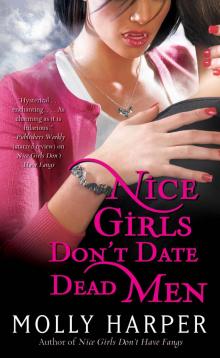 Nice Girls Dont Date Dead Men
Nice Girls Dont Date Dead Men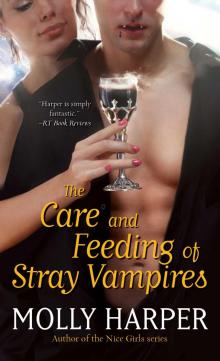 The Care and Feeding of Stray Vampires
The Care and Feeding of Stray Vampires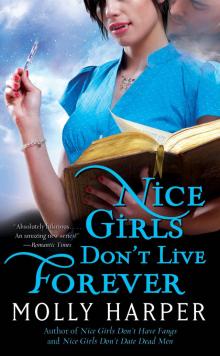 Nice Girls Dont Live Forever
Nice Girls Dont Live Forever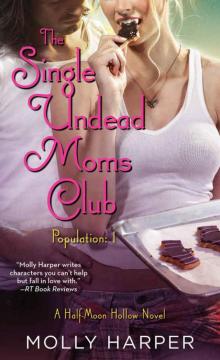 The Single Undead Moms Club
The Single Undead Moms Club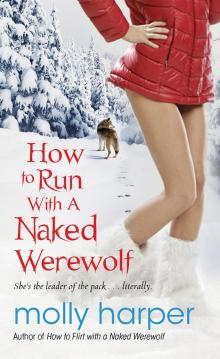 How to Run with a Naked Werewolf
How to Run with a Naked Werewolf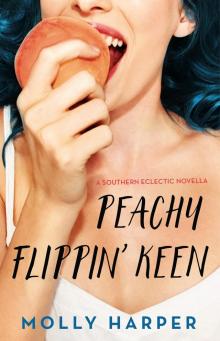 Peachy Flippin' Keen
Peachy Flippin' Keen A Witchs Handbook of Kisses and Curses
A Witchs Handbook of Kisses and Curses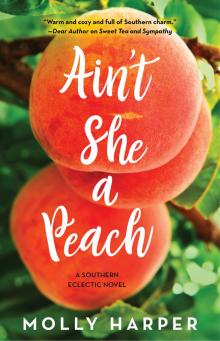 Ain't She a Peach?
Ain't She a Peach?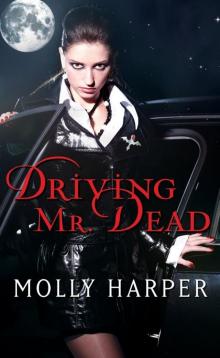 Driving Mr. Dead
Driving Mr. Dead Big Vamp on Campus
Big Vamp on Campus Where the Wild Things Bite
Where the Wild Things Bite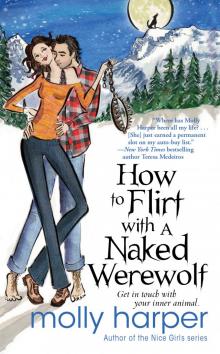 How to Flirt with a Naked Werewolf
How to Flirt with a Naked Werewolf Nice Girls Don’t Sign a Lease Without a Wedding Ring
Nice Girls Don’t Sign a Lease Without a Wedding Ring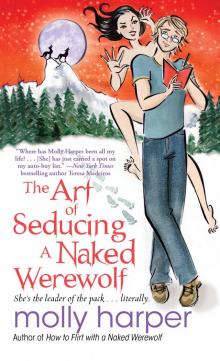 The Art of Seducing a Naked Werewolf
The Art of Seducing a Naked Werewolf Nice Girls Dont Have Fangs
Nice Girls Dont Have Fangs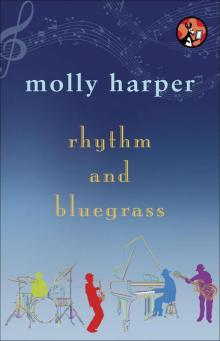 Rhythm and Bluegrass
Rhythm and Bluegrass Nice Girls Dont Bite Their Neighbors
Nice Girls Dont Bite Their Neighbors The Dangers of Dating a Rebound Vampire
The Dangers of Dating a Rebound Vampire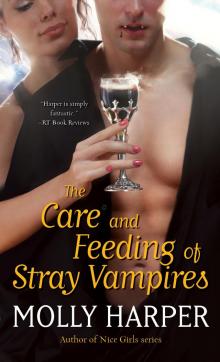 Undead Sublet
Undead Sublet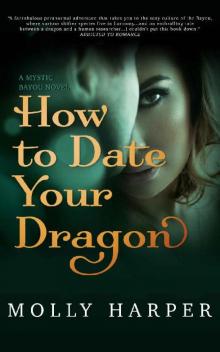 How to Date Your Dragon
How to Date Your Dragon Accidental Sire
Accidental Sire I'm Dreaming of an Undead Christmas
I'm Dreaming of an Undead Christmas Peace, Blood, and Understanding
Peace, Blood, and Understanding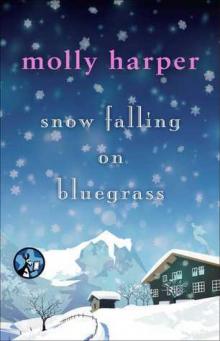 Snow Falling on Bluegrass
Snow Falling on Bluegrass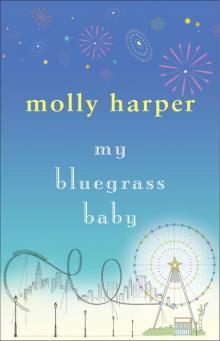 My Bluegrass Baby
My Bluegrass Baby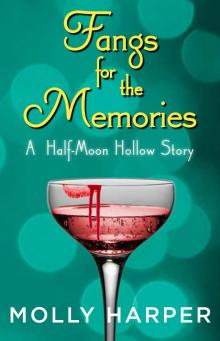 Fangs for the Memories
Fangs for the Memories Save a Truck, Ride a Redneck
Save a Truck, Ride a Redneck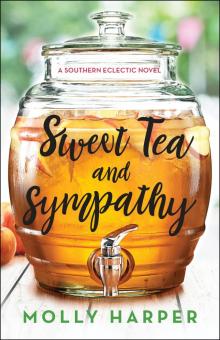 Sweet Tea and Sympathy
Sweet Tea and Sympathy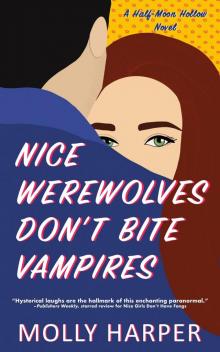 Nice Werewolves Don't Bite Vampires
Nice Werewolves Don't Bite Vampires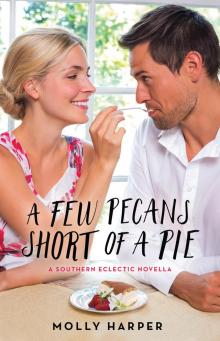 A Few Pecans Short of a Pie
A Few Pecans Short of a Pie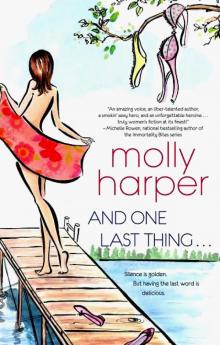 And One Last Thing ...
And One Last Thing ... Big Vamp on Campus (Half-Moon Hollow Series Book 7)
Big Vamp on Campus (Half-Moon Hollow Series Book 7)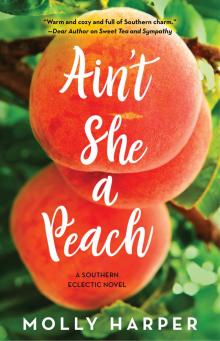 Ain't She a Peach
Ain't She a Peach Love and Other Wild Things
Love and Other Wild Things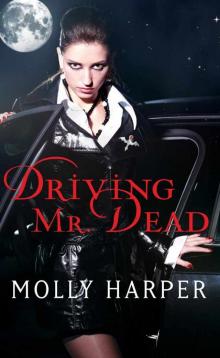 Driving Mr. Dead
Driving Mr. Dead![[Jane Jameson 03.5] Nice Girls Don't Sign A Lease Without A Wedding Ring Read online](http://i1.bookreadfree.com/i1/04/06/jane_jameson_03_5_nice_girls_dont_sign_a_lease_without_a_wedding_ring_preview.jpg) [Jane Jameson 03.5] Nice Girls Don't Sign A Lease Without A Wedding Ring
[Jane Jameson 03.5] Nice Girls Don't Sign A Lease Without A Wedding Ring Where the Wild Things Bite (Half-Moon Hollow #8)
Where the Wild Things Bite (Half-Moon Hollow #8)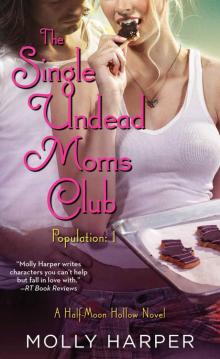 The Single Undead Moms Club (Half Moon Hollow series Book 4)
The Single Undead Moms Club (Half Moon Hollow series Book 4)